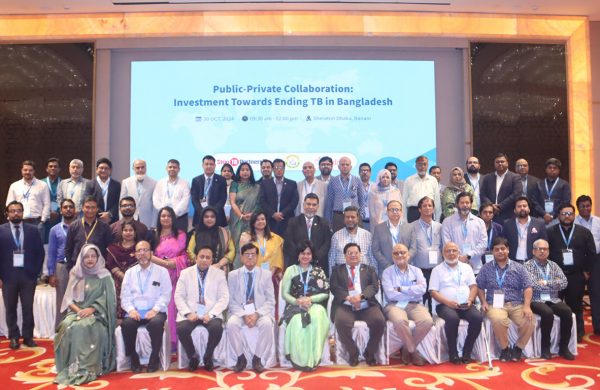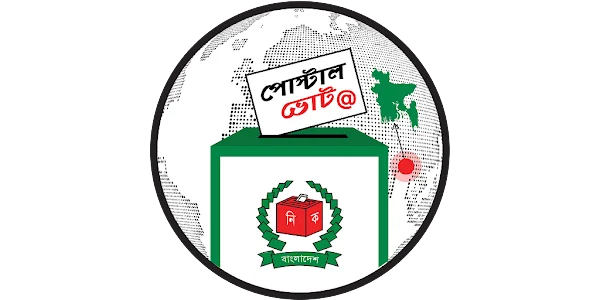Public-Private Partnerships stressed to end TB in Bangladesh
- Update Time : Thursday, October 31, 2024

TDS Desk:
icddr,b, in collaboration with the National Tuberculosis Control Programme (NTP) under the Directorate General of Health Services (DGHS) and with support from the Stop TB Partnership, organised a workshop titled “Public-Private Collaboration: Investment Towards Ending TB in Bangladesh” at the Sheraton Dhaka on Wednesday, said a press release.
The event gathered Government leaders, private healthcare representatives, and key stakeholders to discuss the investments and strategies needed to eliminate TB in Bangladesh
The workshop opened with a keynote presentation by Dr Shahriar Ahmed, Deputy Chief of Party for USAID’s Alliance for Combating TB in Bangladesh, who provided an overview of the current TB burden, identified gaps in existing strategies, and emphasised the need for stronger private sector involvement in TB control efforts nationwide.
Dr Ahmed also highlighted the decreasing availability of donor funds, which has led to a growing funding gap in implementing the national strategic plan for TB control. He stressed the importance of effectively engaging private sector healthcare providers and pharmaceutical industries to address this gap and to support progress towards achieving End TB targets by 2035.
Dr Md. Mahafuzer Rahman Sarker, Line Director of TB-L & ASP at DGHS, affirmed the government’s commitment to TB elimination, emphasising the importance of collaboration between government and private entities to achieve this national goal. To reach a TB-free Bangladesh by 2035, the government has been actively working to enhance the private sector’s capacity.
The NTP has rolled out state-of-the-art molecular diagnostics to more than 600 sites across Bangladesh, while local pharmaceutical companies have contributed by producing first-line TB medications, reducing reliance on international suppliers.
Dr Sayera Banu, Senior Scientist and Head of the Programme for Emerging Infections at icddr,b, highlighted the need for coordinated efforts in TB diagnosis and treatment. She stated, “After working with tuberculosis for over two decades, I have witnessed substantial improvements. In this New Bangladesh, there is a renewed commitment to creating a TB-free nation through collaborative efforts. I believe collaboration among private hospitals, diagnostic centres, and pharmaceutical companies is crucial to tackling tuberculosis effectively.”
In the opening session, Dr Md Zahangir Kabir, Programme Manager-TB of NTP, noted, “We have made significant progress against tuberculosis. To completely overcome this problem, the government and private sector must work together. Previously, we relied heavily on imported medicines, but with the growing capacity of our pharmaceutical companies, some medicines are now produced domestically. If our pharmaceutical industries further invest in achieving WHO pre-qualification, we can even export anti-TB drugs.”
The three breakout groups featured interactive sessions with representatives from pharmaceutical companies (General Pharma, Incepta, Acme, Sandoz, and others), private hospitals (Evercare, Green Life, Ibn Sina, and others), diagnostic centres (Lab Aid, Praava Health, and others), media, and the government.
The workshop concluded with an actionable roadmap for advancing TB care through public-private partnerships, improving diagnostic accessibility, and expanding TB treatment options within the private sector. Discussions underscored the need for sustained collaboration and strategic investments across sectors to support TB elimination efforts.
A consensus emerged around the importance of public awareness initiatives, with the private sector encouraged to leverage corporate social responsibility (CSR) programmes to increase community engagement in TB management. The workshop also stressed the value of training private healthcare providers.
During the open discussion, participants explored new opportunities and avenues for collaboration. Rafidul Haq, Managing Director & CEO of General Pharmaceuticals, emphasised the potential for exporting anti-TB drugs, the need for government support in developing industry capacity, and policies for importing raw materials for drug production. Representatives from private diagnostic centres expressed interest in collaborating with the NTP to expand diagnostic coverage. Private hospital authorities, referencing their commitment to the EPI programme, expressed a similar willingness to collaborate on TB initiatives. They also emphasised patients’ preference for one-stop solutions and urged the NTP to make TB services accessible to their patients.
With over 70% of TB referrals coming from private physicians, the event underscored the essential role of private sector engagement in ensuring accessible, quality TB services. This collaborative initiative reflects Bangladesh’s commitment to a TB-free future through sustained and comprehensive partnerships across public and private sectors.















